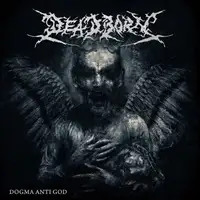Dogma Anti-Deadbourn Movement Sparks Global Debate on Tradition, Faith, and Modernity…
In a world where cultural, spiritual, and political ideas collide daily, a new movement known as Dogma Anti-Deadbourn has risen to prominence, sparking heated debates across academic halls, religious institutions, and social media platforms. What began as a fringe ideology has quickly grown into a global conversation about the balance between tradition and progress.
The Dogma Anti-Deadbourn (DAD) collective, first formed quietly in 2023, officially entered the public sphere this year after staging organized rallies in major cities including London, New York, Lagos, and New Delhi. Their core mission, as outlined in their manifesto, is to challenge what they call the “Deadbourn system”—a term they use to describe rigid, inherited doctrines that they believe suffocate human creativity and freedom.
Challenging “the Deadbourn System”
According to DAD’s founding members, Deadbourn refers not to a single religion or philosophy, but to a cultural pattern in which generations cling to outdated principles at the expense of growth. They argue that unquestioned dogmas—whether religious, political, or social—create “living dead” societies that resist change, innovation, and inclusivity.
“Deadbourn is the idea that we inherit chains disguised as wisdom,” said spokesperson Dr. Amara Velasquez during a televised debate in Madrid. “Dogma Anti-Deadbourn is not anti-faith or anti-tradition. It is anti-stagnation. We fight the worship of ideas that no longer serve humanity.”
This message has resonated particularly with younger generations, who see parallels between the group’s critiques and their frustrations with systemic inequality, political corruption, and environmental inaction.
Supporters See a New Renaissance
For supporters, DAD represents a refreshing intellectual revolution. Activists and students alike have taken up the slogan “Break the Deadbourn, Free the Future,” plastering it across banners and digital spaces. At universities, DAD-inspired forums are drawing crowds larger than those of traditional student government meetings.
“We are not against belief,” said Nigerian poet and activist Oladipo Kareem at a rally in Lagos. “We are against the blind loyalty that keeps societies locked in the past. Dogma Anti-Deadbourn is a call to courage—to question, to reimagine, and to rebuild.”
Cultural critics have compared the movement to past intellectual waves such as the Enlightenment or the civil rights movements of the 20th century, noting its mix of philosophical critique and grassroots activism.
Critics Call It “Dangerous Relativism”
But not everyone is cheering. Religious leaders, conservative politicians, and some cultural scholars have pushed back strongly, accusing DAD of promoting moral relativism and destabilizing communities.
Archbishop Leonard Grayson of the Anglican Communion dismissed the movement as “a shallow rebellion dressed up as progress.” In a recent sermon, he warned that movements like DAD could leave societies “adrift in a sea of unchecked individualism, where nothing is sacred and everything is negotiable.”
Others argue that DAD’s lack of clear structure makes it more of a protest than a coherent philosophy. “It’s easy to rally against ‘the Deadbourn,’ but what are they offering as a replacement?” asked sociologist Dr. Mariko Tan in a recent op-ed. “Without a shared framework, their anti-dogma can become just another dogma.”
The Digital Battlefield
Much of the debate has spilled onto social media platforms, where the hashtag #AntiDeadbourn has trended multiple times this year. Memes, fiery threads, and video essays dissecting the philosophy have reached millions of users.
Some digital creators have embraced DAD as a tool for activism, while others parody its language, suggesting that labeling everything “Deadbourn” risks oversimplifying complex traditions.
Despite the controversies, online attention has only fueled the movement’s momentum, with DAD leaders announcing plans for an international summit in Berlin next spring.
A Movement at the Crossroads
Whether Dogma Anti-Deadbourn will evolve into a lasting cultural force or fade as a passing trend remains uncertain. What is clear is that it has already disrupted conversations around tradition, belief, and modernity.
For some, it represents a liberating break from inherited chains. For others, it is a destabilizing force that undermines social cohesion.
As debates intensify, one thing seems certain: Dogma Anti-Deadbourn has tapped into a deep and growing hunger for societies to confront the tension between the past and the future.
In an era where identity, belief, and progress intersect daily, the world will be watching closely to see whether the Anti-Deadbourn movement becomes the next great intellectual revolution—or another spark that fizzles out in the noise of history.
Word count: ~707
Would you like me to frame this as an international breaking news article (with more urgency and quotes) or as a feature-style analysis piece (more reflective and background-heavy)?
